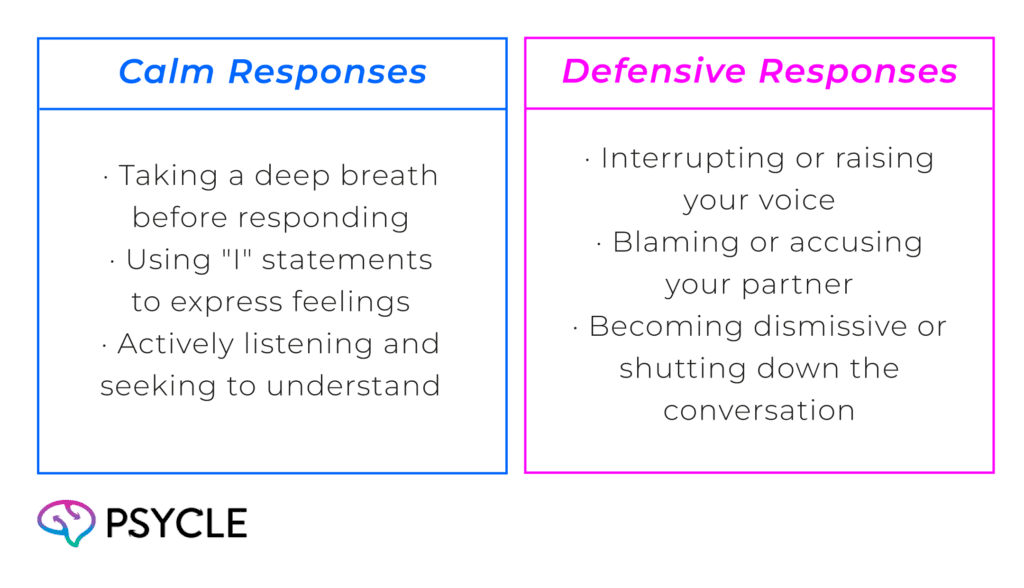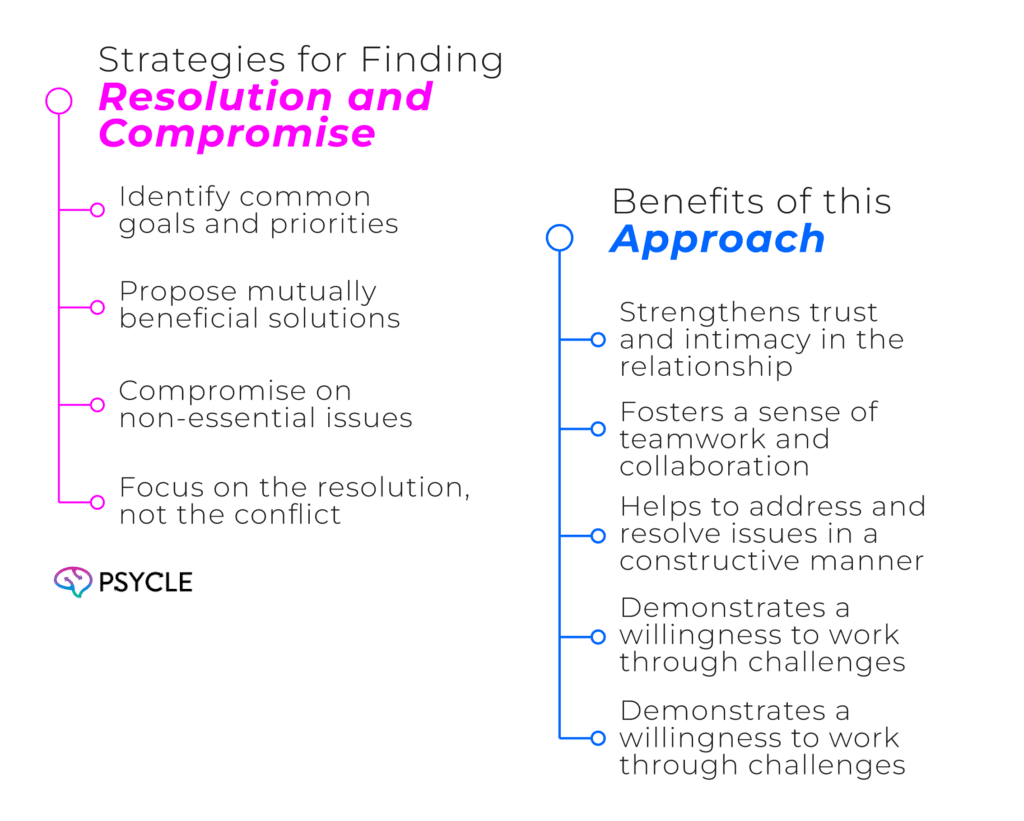Relationships face many challenges, and tough conversations are often needed. These talks are hard but vital for trust, conflict resolution, and a stronger bond. By being empathetic, open, and willing to compromise, you can tackle problems, find agreement, and grow closer.
Key Takeaways
- Tough conversations are crucial for a healthy relationship
- Open communication and conflict resolution are key to building trust
- Addressing issues with respect and understanding can deepen intimacy
- Finding compromises and meeting in the middle is important
- Patience and a willingness to understand your partner’s perspective are essential
Understanding the Importance of Tough Conversations
Having open communication and knowing how to resolve conflicts are key to building trust and a stronger relationship. Tough conversations might seem scary, but they can actually bring more understanding, problem-solving, and intimacy when done with care and empathy.
Fostering Open Communication and Resolving Conflicts
By tackling issues directly, couples can prevent resentment and find solutions that work for both. Open communication lets partners share their thoughts, feelings, and needs. Conflict resolution skills help them deal with tough talks and find common ground.
Building Trust and Strengthening the Relationship
When couples have tough conversations with respect and openness, they build trust. This trust makes a safe space for sharing deep thoughts and feelings. It leads to more intimacy and growth in the relationship.
By having these tough conversations, couples can better handle their relationship’s ups and downs.
Choosing the Right Time and Setting
The timing and setting of difficult conversations with your partner are crucial. A safe and comfortable environment helps both feel at ease. This makes it easier to have honest talks and find solutions.
Creating a Safe and Comfortable Environment
To have a successful tough conversation, follow these tips:
- Schedule a specific time to talk, ensuring both partners are ready.
- Choose a private location for uninterrupted conversations.
- Set ground rules like no interrupting and active listening.
- Make sure the setting is comfortable, with good lighting and seating.
- Avoid talking when stressed or tired, as emotions can run high.
Using “I” Statements to Express Feelings
Having difficult conversations with your partner can be tough. But using “I” statements helps a lot. They let you share your feelings without blaming your partner. This way, you both can talk openly.
When you own your feelings, it helps you both understand each other better. It makes solving problems easier. Here are some tips for using “I” statements:
- Start with “I feel…” or “I think…” to share your emotions and thoughts. For example, “I feel hurt when you forget to call me during your work trips.”
- Avoid “you” statements that sound like blame or criticism, such as “You never listen to me.”
- Be specific and talk about the current situation or behavior. For instance, “I feel frustrated when we don’t have time to discuss our financial goals” instead of “You never want to talk about money.”
- Share your feelings with “I” statements, but avoid using words that make things worse. For example, “I feel disappointed when we don’t have regular date nights” instead of “I feel completely neglected and abandoned.”
Getting good at using “I” statements helps you talk about your needs and worries. It also helps your partner do the same. This way, you both feel heard and understood. It makes your relationship stronger and helps you solve problems together.
Active Listening and Understanding Your Partner’s Perspective
Effective communication during difficult conversations means active listening and really understanding what your partner thinks. By listening well, you show you care about their feelings and thoughts. This builds empathy and trust in your relationship.
It’s key to put aside your own thoughts when talking about hard stuff. Be open-minded and try to see things from your partner’s side, even if you don’t agree. This helps you have a better conversation and find things you both can agree on.
Validating Emotions and Building Empathy
Understanding and validating your partner’s emotions is a big part of listening well. Show you get their feelings, even if you don’t get everything. Saying “I can see how that made you feel…” or “It’s understandable that you’re feeling this way” helps a lot.
- Actively listen to your partner’s concerns and perspectives.
- Set aside your own biases and preconceptions to truly understand their point of view.
- Validate your partner’s emotions by acknowledging their feelings and experiences.
- Demonstrate empathy and a genuine desire to find a resolution together.
By focusing on active listening in tough talks, you and your partner can tackle hard issues more successfully. This strengthens your bond and makes your relationship stronger.
Staying Calm and Avoiding Defensive Behavior
Keeping calm and not getting defensive is key to solving problems and strengthening your bond. When you manage your emotions and listen with understanding, you’re more likely to find solutions that work for both of you.
Staying calm and avoiding defensiveness requires a few important steps, some of which we’ve already covered:
- Take deep breaths: Pause and breathe deeply to stay calm before you speak.
- Use “I” statements: Share your feelings and thoughts with “I” statements. This helps avoid making your partner feel attacked.
- Practice active listening: Really listen to what your partner is saying. Try to see things from their point of view, even if you don’t agree.
- Avoid interrupting: Let your partner finish speaking without interrupting. Give them the same chance to listen to you.
- Reframe your mindset: See tough conversations as chances to improve your communication and emotional regulation, not just as fights.
By staying calm and not getting defensive, you and your partner can have tough talks with empathy. You’ll find common ground and grow closer together.

“The single biggest problem in communication is the illusion that it has taken place.”
– George Bernard Shaw
Focusing on Resolution and Compromise
When we face tough talks and different views in a relationship, finding a way out is key. By working together, we can tackle our issues and find solutions that please both sides.
Finding Common Ground and Meeting in the Middle
Finding common ground is crucial for solving conflicts. It means we listen to each other and seek a middle path. This way, we both feel heard and understood.
Meeting in the middle shows we’re committed to our relationship. It builds trust and strengthens our bond. It also prepares us for future challenges.

By focusing on finding solutions and compromising, we can overcome tough talks. This approach brings us closer and makes our relationship stronger.
How to Have Tough Conversations with Your Partner
Talking about difficult topics with your partner can seem scary. But it’s key to keeping your relationship healthy. By being empathetic, open, and focused on solving problems, you can grow closer.
Start by picking a quiet, private spot for your talk. Make sure it’s free from distractions. Speak from your own feelings using “I” statements, not blaming your partner.
Listening well is crucial. Try to see things from your partner’s side. Validate their feelings and build empathy. This helps find common ground and solutions.
Keep your cool and don’t get defensive. If feelings get too high, take a break. Then, come back when you’re both calmer.
The aim of tough talks is to find a solution you both can live with. By focusing on finding a way forward, you can tackle tough subjects and grow your bond.
- Create a safe and comfortable environment for the conversation
- Use “I” statements to express your feelings and perspectives
- Practice active listening to understand your partner’s point of view
- Stay calm and avoid defensive behavior
- Focus on resolution and compromise to find common ground
“The art of communication is the language of leadership.” – James Humes
Remember, tough conversations are chances to get closer to your partner. With empathy, patience, and teamwork, you can overcome any challenge and build a stronger relationship.
Addressing Common Relationship Issues
Relationships can be complex, leading to tough talks about finances, intimacy, and parenting. But, by being open, empathetic, and willing to find common ground, couples can find solutions that benefit both of them.
Finances: A Delicate Balance
Talking about money is hard because it touches on deep beliefs and values. To tackle relationship issues related to money, honest and clear talks are key. Discussing spending, saving, and resource use helps couples make budget-friendly decisions that match their future plans.
Intimacy: Fostering Emotional and Physical Connection
Keeping a relationship intimate requires open talk and understanding. It’s important for partners to share their needs, desires, and limits. This way, they can tackle any intimacy issues and reconnect emotionally and physically.
Parenting Challenges: Navigating the Joys and Stresses
Parenting brings joy but also challenges for couples. Talking about how to raise kids, discipline, and childcare duties helps align expectations. By being empathetic and willing to compromise, couples can handle parenting’s ups and downs together.
Dealing with common relationship issues through honest talk is crucial for a healthy partnership. By facing challenges together, couples can strengthen their bond. This builds a strong foundation for a lasting and fulfilling relationship.
Overcoming Communication Barriers
Difficult talks with your partner can be tough, especially with anger, resentment, and emotional triggers. But, by tackling these issues, you can have better conversations that make your relationship stronger.
Dealing with Anger, Resentment, and Emotional Triggers
High emotions can make talks go wrong fast. Anger and resentment can lead to hurtful words and defensiveness. To get past these, it’s key to recognize your emotional triggers and find ways to handle them.
- Take a deep breath before you speak. This helps you stay calm and avoid saying something you might regret.
- Listen carefully to what your partner says, even if it’s hard. Try to see things from their side, not just wait for your turn.
- Don’t bring up old arguments. Stick to the issue at hand to keep the conversation focused and productive.
By controlling your emotions and responding with empathy, you can overcome these barriers. This leads to more effective and positive conversations with your partner.
The Role of Counseling and Professional Support
Seeking help from a counselor can be very helpful when dealing with tough talks and relationship issues. A therapist can teach couples how to converse more successfully, solve problems, and grow closer. They offer tools and strategies for improving communication, resolving conflicts, and strengthening the bond between partners.
Counseling is a safe place for couples to talk about their problems and feelings. They can learn to listen better, manage their emotions, and find ways to agree. A professional can help them understand each other’s views better.
There are many ways to get professional help, like relationship workshops, seminars, and online resources. These offer more chances for couples to learn and grow. They help couples have better conversations about their relationship.
Getting professional counseling can really change things for couples who want to improve their communication and bond. With the right support, couples can tackle even the hardest conversations. They can come out stronger and more connected than ever.
Practicing Patience and Understanding
Talking about tough topics with your partner can be hard. But, being patient and understanding is key for a healthy relationship. By facing challenges together, couples can grow closer.
Remember, your partner might need time to think about their feelings. Practicing patience lets them feel heard and valued. This makes the conversation better for both of you.
It’s also vital to understand each other. Listen to your partner, validate their feelings, and look for solutions together. This shows you’re both committed to solving problems together.
- Acknowledge that tough conversations can be challenging and emotionally draining.
- Approach the discussion with empathy, recognizing that your partner may need time to process their thoughts and emotions.
- Seek common ground and focus on finding solutions that work for both of you.
- Communicate with patience and understanding, avoiding defensive or confrontational behavior.
Creating a space of mutual patience and understanding helps you tackle tough conversations. This way, you and your partner can improve your communication and strengthen your bond.
Conclusion
Open and honest communication is key to solving tough issues in relationships. It helps couples understand each other better. This way, they can work through problems and grow closer.
Dealing with money, intimacy, or parenting can be tough. But talking openly with your partner is crucial. Being patient, open, and focused on solving problems helps build trust and strengthens your bond.
Don’t be afraid of tough conversations. They are chances to grow and understand each other better. With the right approach, you and your partner can overcome any challenge and build a strong, lasting relationship.
FAQs
Why are Tough Conversations With Your Partner Crucial for a Healthy Relationship?
Open communication is key to trust and connection. By discussing hard topics with respect, couples can solve problems and grow closer.
How Can You Create a Safe and Comfortable Environment for Tough Conversations?
Choose the right time and place for these talks. Make sure you’re alone and agree on rules. This helps both feel safe and open.
What is the Importance of Using “I” Statements During Tough Conversations?
“I” statements share personal feelings and experiences. They avoid blame, helping both sides understand and work together.
How Can Active Listening and Understanding Your Partner’s Perspective Help During Tough Conversations?
Listening and empathizing shows you value your partner’s feelings. It helps you understand each other better, fostering respect and cooperation.
Source Links
- https://www.ncbi.nlm.nih.gov/pmc/articles/PMC2743430/
- https://link.springer.com/article/10.1186/s12978-020-0877-4
- https://kaelascottcounselling.com/afraid-difficult-conversation
- https://relationshipcenter.com/blog/2022/4/19/communication-skills-for-couples-i-statements
- https://holdinghopemft.com/active-listening-a-key-to-deeper-intimacy-and-understanding-in-your-relationship/
- https://www.verywellmind.com/what-you-need-to-know-about-relationship-counseling-4694545

